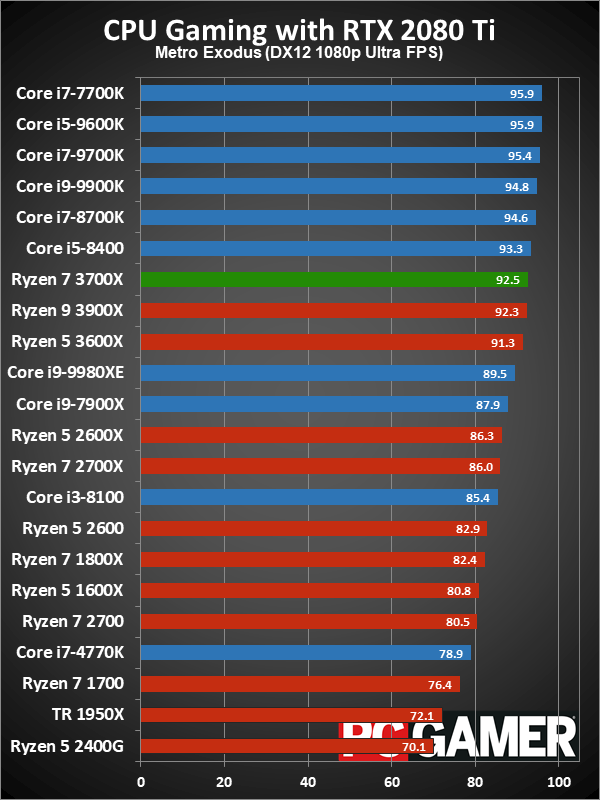- Joined
- Oct 5, 2017
- Messages
- 595 (0.21/day)
Not to be too pointed, but I already did a point-by-point breakdown of why this is wrong, including sources linked like this.1) The 10980XE does not support any HEVC it doesn't have an IGP and AMD has a few TB3 motherboards. So optane i guess?
2) LOL what? X299 idle is not low by any means. Overclocking I could give you if you want a household heater.
3) Early adoption of AMD 1st gen Ryzen maybe what issues are you talking about now. 3rd Gen Ryzen is has very good motherboards and memory support.
4) Uhm Intel's HEDT uses a different internal memory architecture than desktop Intel chips. This leads to higher latencies and with that a loss is ST performance giving the lead to AMD whoops so much for ST performace. Check the game benchmarks above. And also pay attention to the point that the 10980xe and Ryzen 3900x have similar clock frequencies and AMD won when it came to games every time in the charts picked. Even going to the source site it is hard to find any real win for Intel even when cherry picking your data.
5) See 4.
6) X399 yeah. Although there are quite a few X570 boards if the 3950X is an option in that size category depending on your needs.
7) It's new? And optimizations are coming with every new version of Windows 10. Although this really isn't a thing that should be an issue given that Ryzen is fast enough already.











